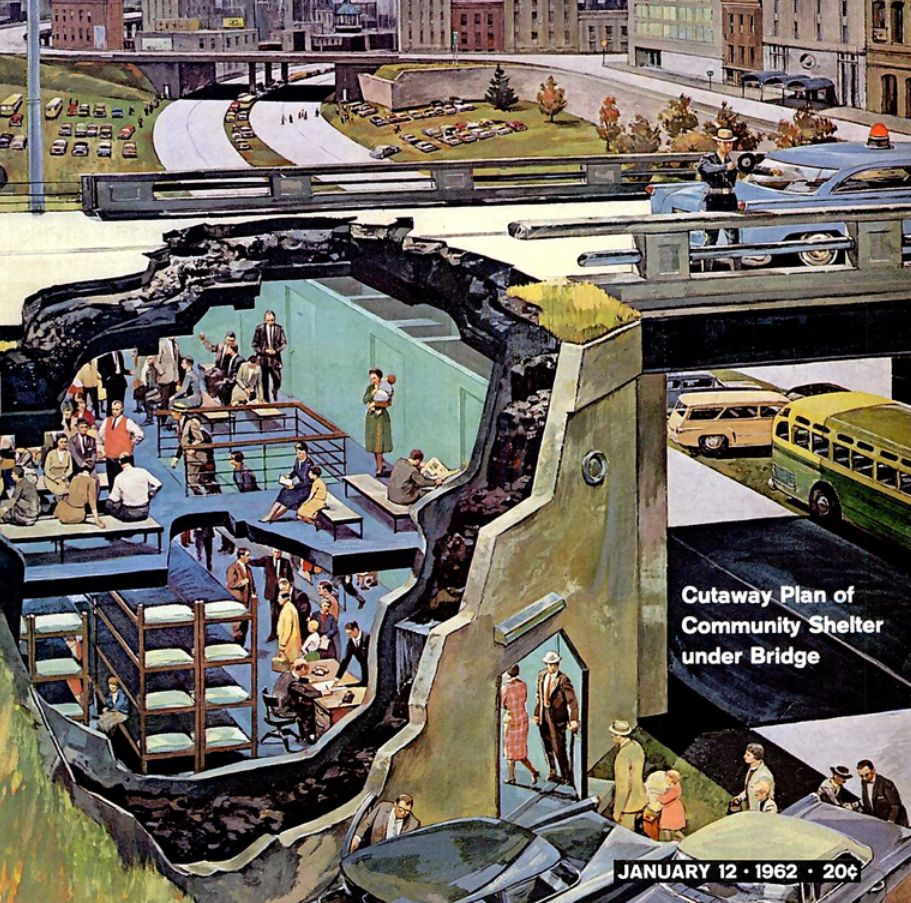In addition to small residential bomb shelters built in backyards or in basements, some communities planned–and in some cases, built–larger shelters for the community. Most community bomb shelters were based in existing buildings–church or school basements, in particular. But this cutaway drawing shows a bomb shelter under a bridge built for this express purpose. Click… Continue reading Community Bomb Shelter Under Bridge, 1962
Home Nuclear Bomb Fallout Shelter, 1962
Nice, if low-resolution, cutaway drawing of a nuclear fallout (i.e., bomb) shelter from 1962. Source: Fallout Shelter Handbook by Chuck West. Published by Fawcett Books.
Home Fallout Shelter, 1960
Home-based nuclear fallout shelters combined everything that magazines needed in the 1960s to attract readers: fear, home remodeling, and the opportunity for producing great cutaways. Just going into your basement during nuclear attack would decrease your chance of radioactive exposure to 10% of the exposure if you had stayed outside. By undertaking some pretty major… Continue reading Home Fallout Shelter, 1960
British DeHavilland Comet Passenger Jet, 1950
In 1950, easy passenger jet travel was still a dream that could excite the public. The deHavilland Comet was still in its infancy when, for a test flight, it flew from London to North Africa, a distance of 3,000 miles, at a top speed of 450 miles per hour. See Another Cutaway View of… Continue reading British DeHavilland Comet Passenger Jet, 1950
Wright Cyclone Engine World War 2 Aircraft Cutaway, 1945
This was a fictional Second World War aircraft meant to illustrate the Wright Cyclone engine (located in the engine cowling, #10) on a test flight. The aircraft interior has been specially designed for testing. Areas of this aircraft shown on the cutaway: Oxygen supply for crew. Movie camera recording instruments. Movie lights. Instrument panel. Flight… Continue reading Wright Cyclone Engine World War 2 Aircraft Cutaway, 1945
